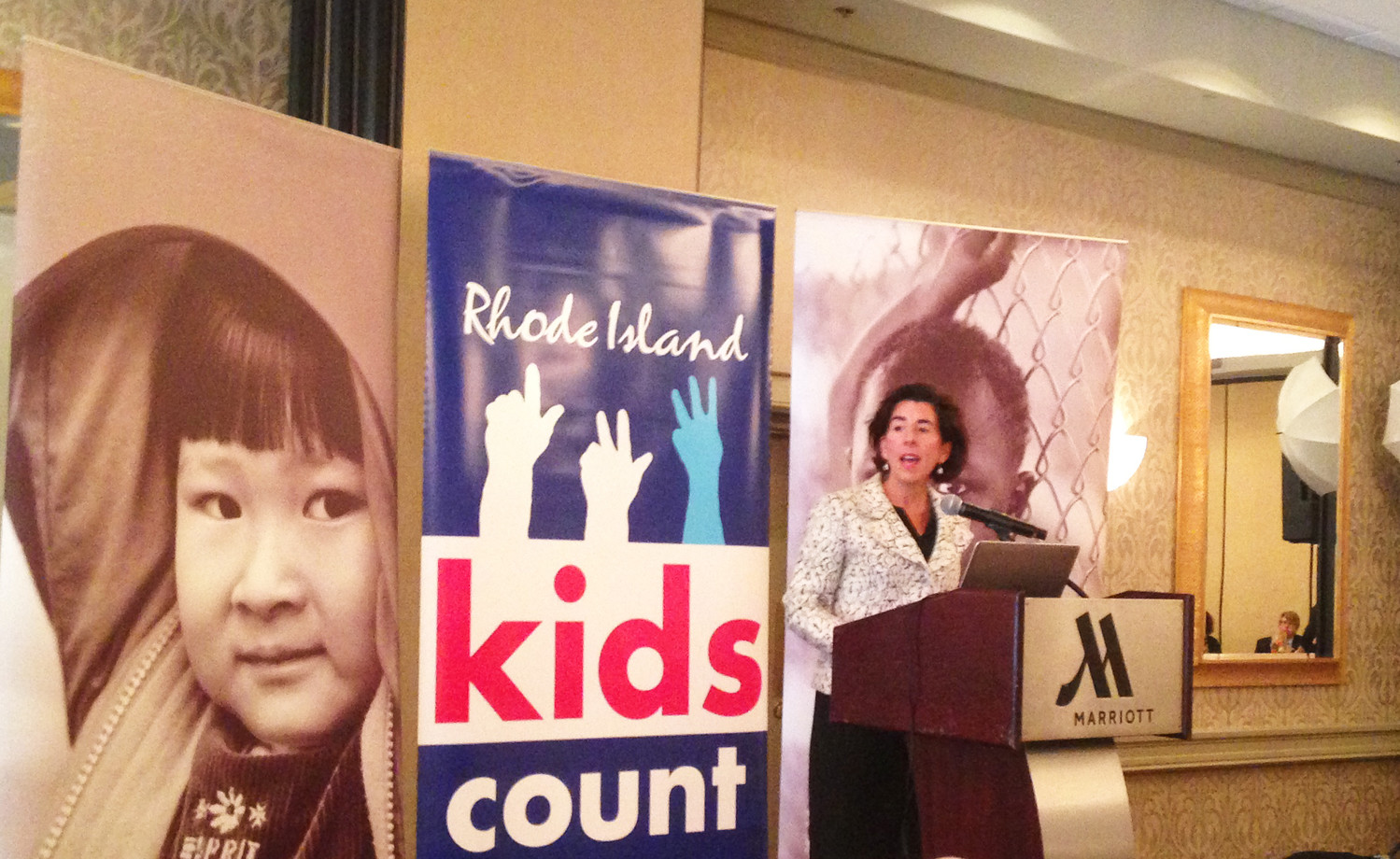UHIP debacle: postcards from the edge
Will Gov. Gina Raimondo abandon the Deloitte software system infrastructure and admit that the system cannot be fixed?
Instead, time and money might be better spent addressing the underlying causes of increases in demand for services: an aging demographic, economic disruption, disinvestment in social safety nets, and decline in social cohesion.
PROVIDENCE – Here are some recent snapshots, call them postcards from the edge, illustrating the continuing sad saga of the $400 million and counting Unified Health Infrastructure Project, or UHIP.
First postcard: “Doing the best she can.” At the annual Rhode Island Kids Count luncheon on Nov. 6, celebrating the health of children in Rhode Island, Gov. Gina Raimondo began her remarks by thanking her team, gesturing at a nearby table where a host of government officials were seated.
Raimondo named them, mostly using their first names; they included: Becky [Boss, the director of the R.I. Department of Behavioral Healthcare, Developmental Disabilities and Hospitals]; Eric [Beane, the secretary of the R.I. Executive Office of Health and Human Services; Zack [Sherman, the director of HealthSourceR; Michael Dibiase, [the director of the R.I. Department of Administration]; Marie Ganim, the R.I. Health Insurance Commissioner, who Raimondo said was new to the team.
And, Raimondo continued, “Courtney Hawkins,” pausing briefly, then saying: “Who is doing the best she can, which is a great job at DHS,” drawing distinct laughter from the crowd.
The hot potato
Hawkins, the director of the R.I. Department of Human Services, has been the one who has been passed the hot potato that is the continuing UHIP debacle.
The week before, on Nov. 2, U.S. District Court Judge William Smith named Deming Sherman as special master in a lawsuit brought by the American Civil Liberties Union over delays in processing food-stamp applications. The lawsuit alleged that Rhode Island was in violation of federal law by not processing food-stamp applications, known as SNAP, in a timely fashion.
In response to the naming of Sherman as the special master, Hawkins said, as reported by WPRI: “I think we are looking forward to working with the special master and are always open to new ideas that someone might have. The recent discovery of the new backlog has certainly been a setback for the department, and we’ve been laser-focused on administering timely benefits to Rhode Islanders.”
The discovery of the backlog referred to by Hawkins was the fact that Deloitte, the architect of the software system under girding the more than $400 million Unified Health Infrastructure Project, had found that the number of unprocessed applications was nearly twice as large as had been reported in September.
Beane had announced on Oct. 24 that the backlog of pending applications, said to be a total of 3,734 in September, was actually much larger, because a new program meant to streamline processing had misfiled “several thousand” additional unprocessed applications, according to reporting by The Providence Journal.
Beane said further than the state would receive credit worth $58.6 million in services from Deloitte, taking responsibility for its mistake.
Second postcard: 1,001 misplaced applications
ConvergenceRI bumped into Nicholas Oliver, the executive director of the Rhode Island Partnership for Home Care, at the Ten Men Summit on Nov. 9 at Providence College.
Oliver told ConvergenceRI that among the several thousand unprocessed applications misplaced by Deloitte and UHIP, there were a total of 1,001 applications for home health services. Some, Oliver continued, were 10 months old.
Beyond the travesty of the misplaced, unprocessed applications, Oliver continued, was the fact that the nearly $60 million in credits from Deloitte will not be targeted toward improving the broken UHIP system, but rather be put into the state’s general fund.
Third postcard: client services approved; she's been dead for months
This past weekend, while grocery shopping, ConvergenceRI ran into Michael Bigney, the administrator and co-owner of Home Health & Hospice Care of Nursing..
Bigney told ConvergenceRI, with a rueful grimace, that his agency had just received a long delayed approval for home health services for a client; the client had been dead for nine months.






